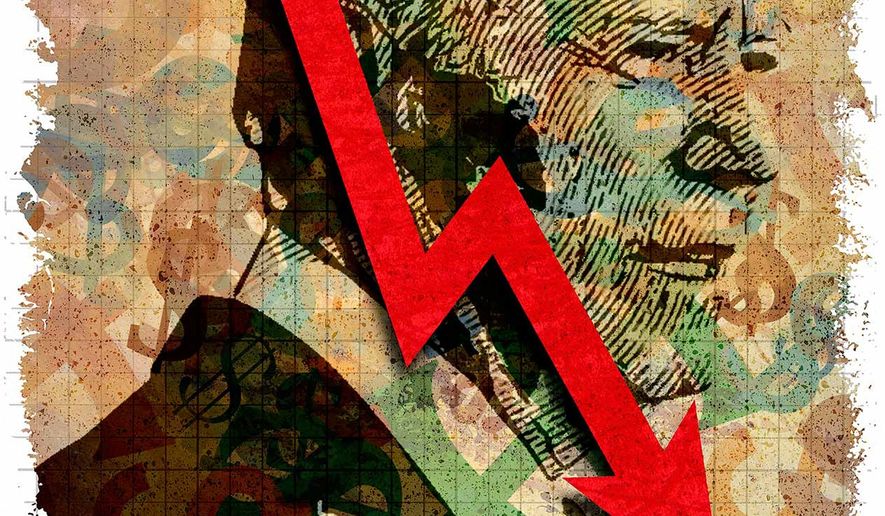OPINION:
It is rare talent that, figuratively, can spin straw into gold, and it is ordinary ineptitude that turns gold into lead. President Biden has put his lack of financial acumen on full display while blithely presiding over unbridled inflation that is shoving our economy toward a leaden recession. The dismal phenomenon could not be more appropriately named: Bideninflation.
The Bureau of Economic Analysis reported Friday that personal consumption expenditures leaped 0.6% in January — more than the 0.4% predicted by analysts and far greater than the 0.2% increase in December. And prices on an annualized basis that had been trending downward for the past several months have veered upward again, from 5.3% in December to 5.4% in January.
The bureau has also reported that year-over-year inflation in January measured 6.4%, outpacing a 6.1% increase in wages. Yet Mr. Biden doesn’t seem to grasp the bottom line. “Annual inflation in January is down from the summer,” he said in a Friday statement, “while the unemployment rate has remained at or near a 50-year low and take-home pay has gone up.” His cherry-picked economic metrics are accurate, but they tiptoe around the fact that Americans continue to slip backward along the path to prosperity.
Moreover, the Federal Reserve’s white-knuckle struggle to bring down prices by raising interest rates makes a recession virtually inevitable. That’s the assessment contained in a new white paper written by former Federal Reserve Gov. Frederic Mishkin and a group of prominent U.S. economists.
They found that on 16 occasions since 1950 in which a central bank in the United States, Canada, Germany or the United Kingdom raised interest rates to subdue inflation, a recession ensued each time. “There is no post-1950 precedent for a sizable … disinflation that does not entail substantial economic sacrifice or recession,” the paper noted.
The U.S. economy has not turned south quite yet, but the Fed’s eight interest rate increases totaling 4.5% since last March have clearly done a number on U.S. homeowners. Residential real estate lost a cumulative $2.3 trillion in value between June and December, according to Redfin, a national real estate broker. Homebuyer demand has plunged as rates on a 30-year fixed mortgage have spiked to nearly 7%. In normal times, Americans count on the wealth-building effect of homeownership to keep them out of the poorhouse in retirement, but Biden times are far from normal.
Inflation did not materialize out of thin air, after all, but largely the result of the president’s habit — urged on by fellow Democrats — of dumping printed dollars by the trillions into the post-pandemic economy. His most recent greenback bonanza — the so-called Inflation Reduction Act of 2022 — is running headlong against the Fed’s inflation-taming strategy by doling out $369 billion for “energy security and climate change.”
It’s unsurprising, then, that 87% of Americans responding to a Harris Poll released Friday are worried about inflation, and 80% expect a recession.
Still, the U.S. economic landscape looks bright to Mr. Biden as he squints into the future: “When I travel the country, I see optimism for this year and the years ahead.” Where the president sees gold, sadly, Americans see the leaden effect of Bidenflation.




Please read our comment policy before commenting.